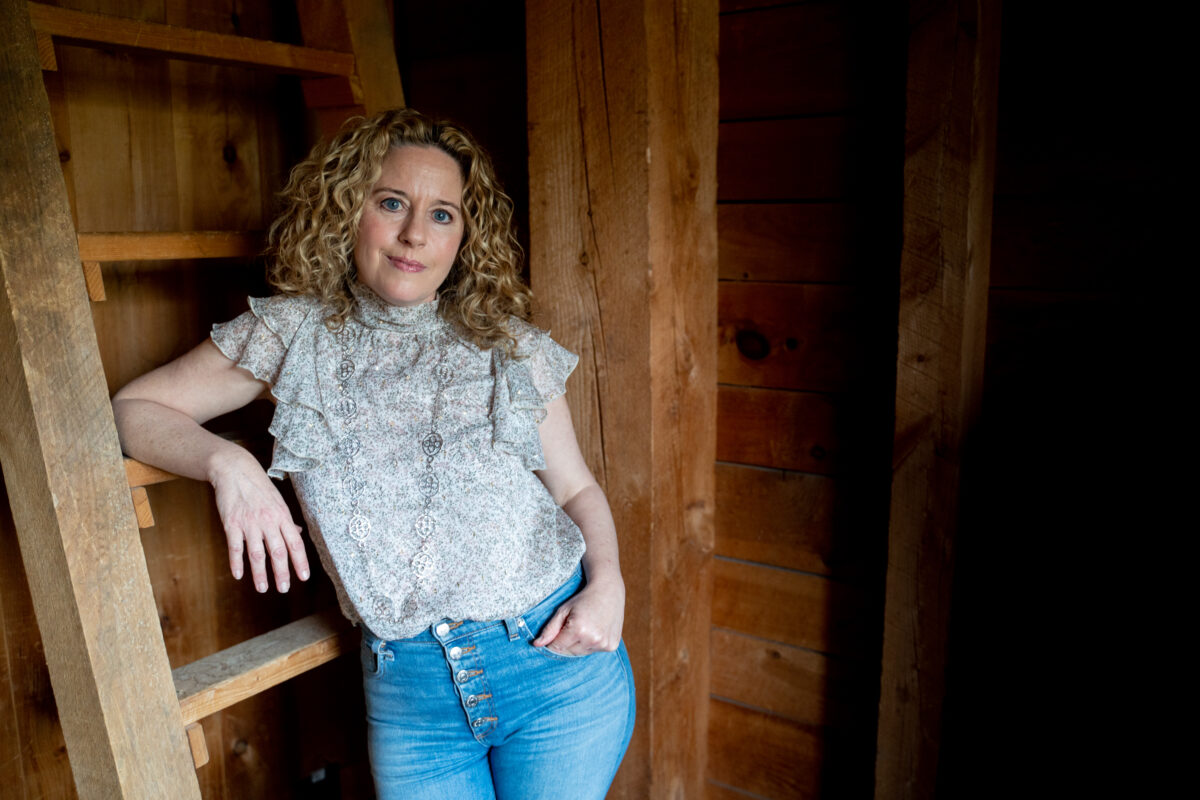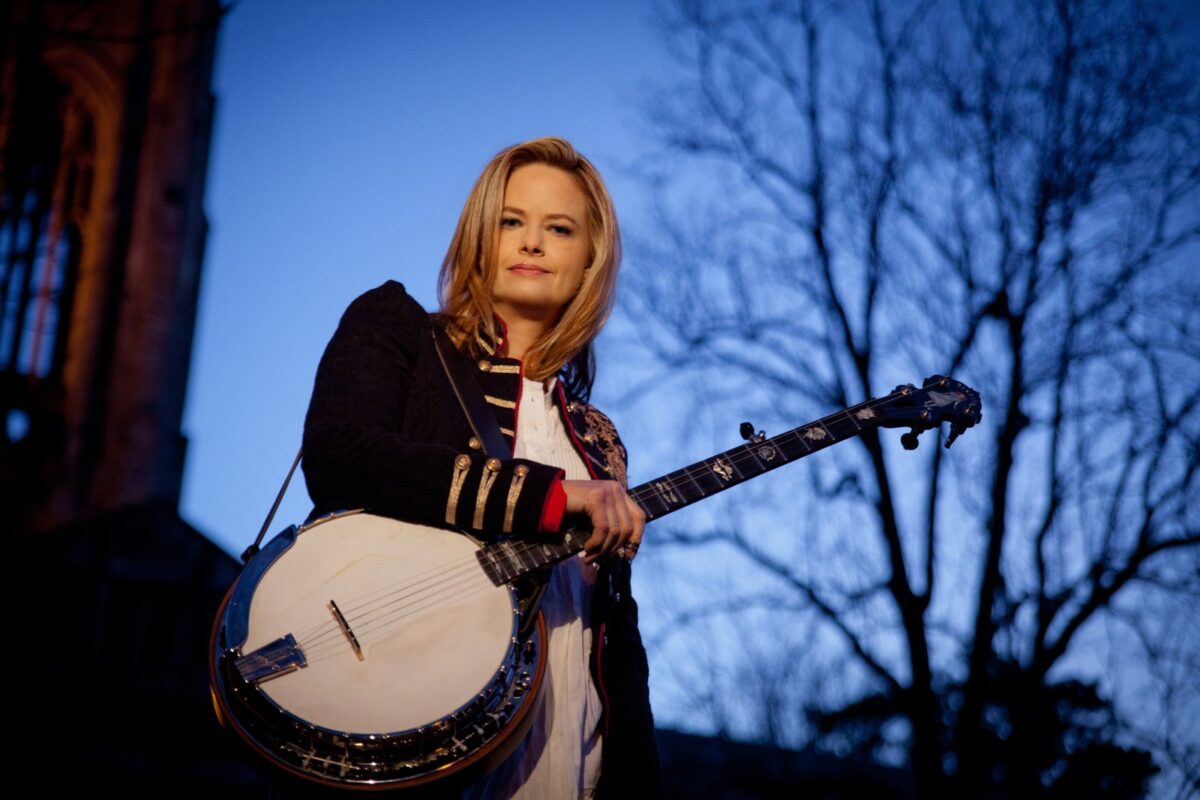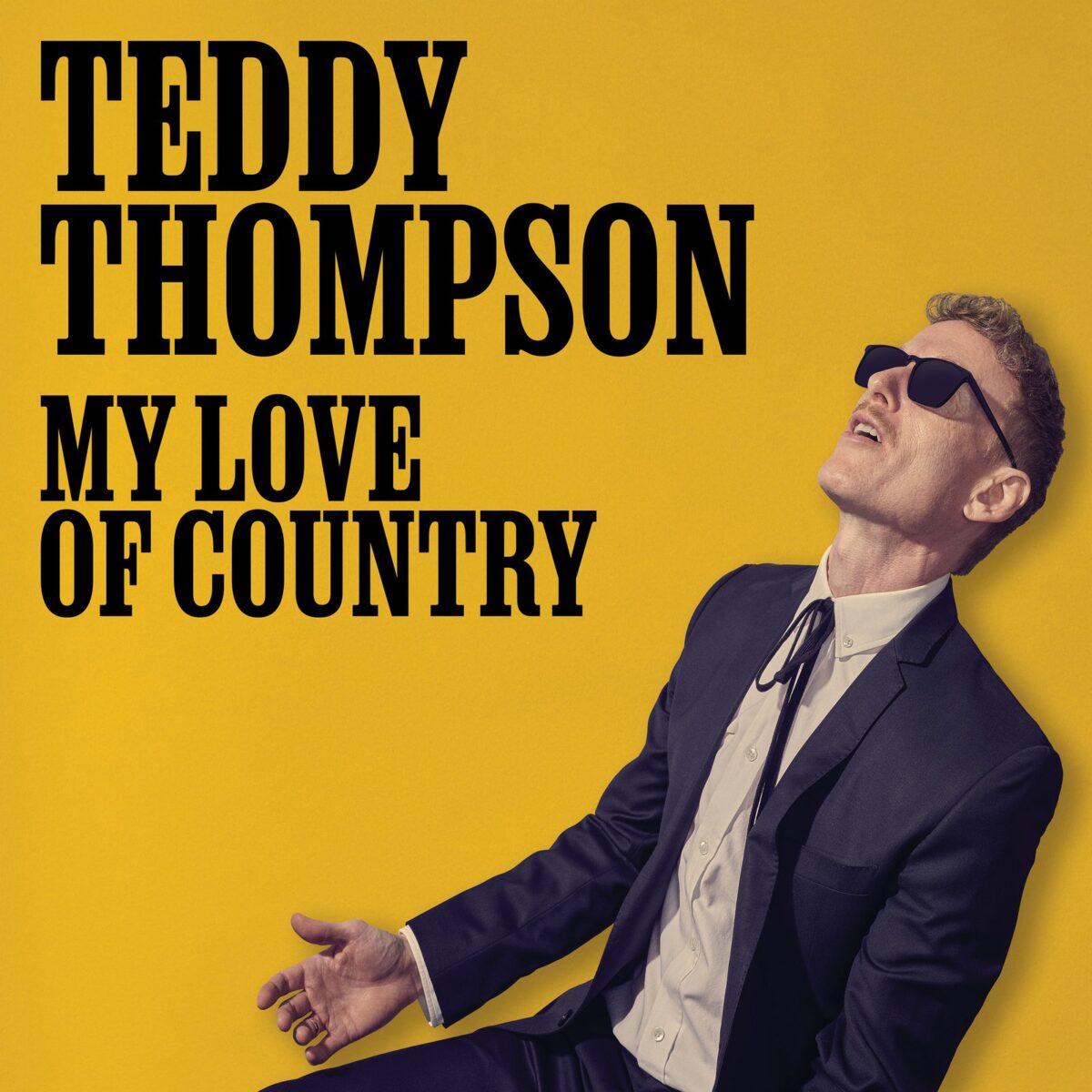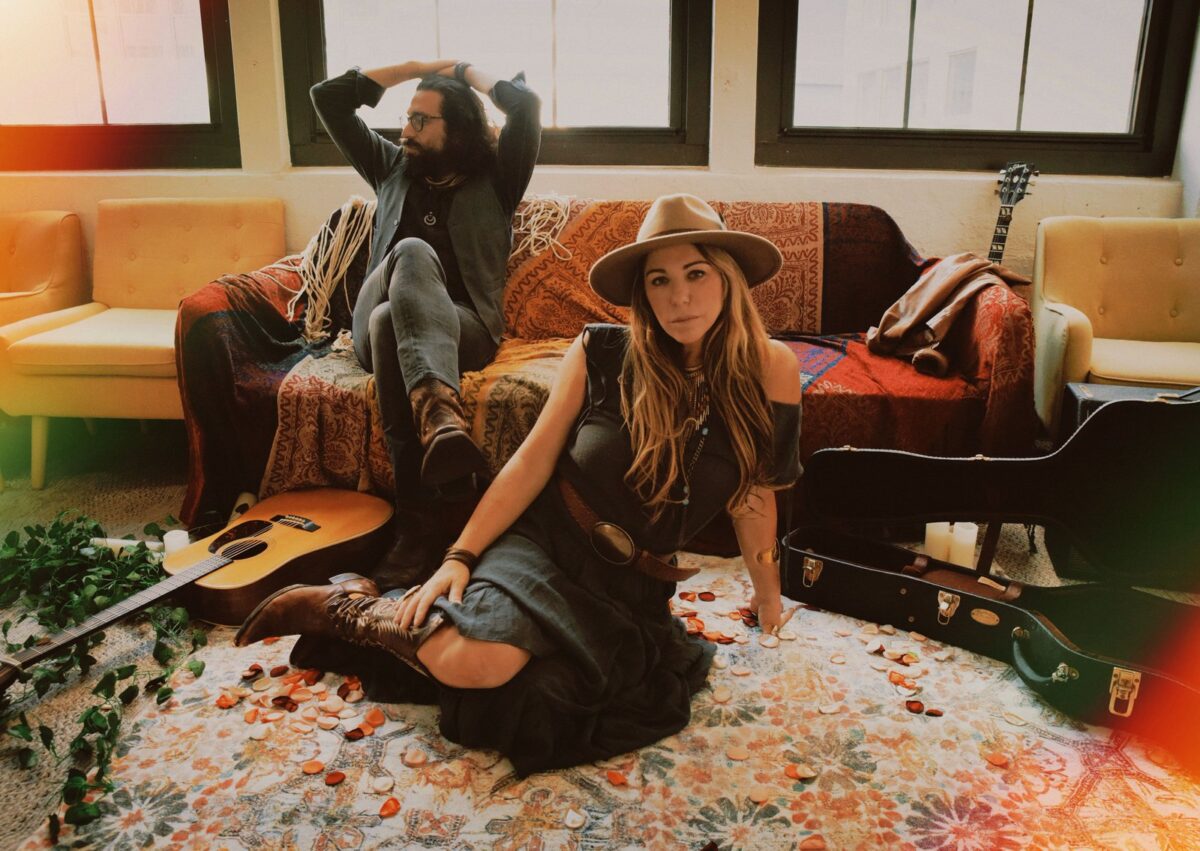Jan
13
Amy Helm, Alison Brown, Jill Barber, Teddy Thompson + Nefesh Mountain
Sat January 13th, 2024
6:30PM
Main Space
Minimum Age: 18+
Doors Open: 6:00PM
Show Time: 6:30PM
Event Ticket: $25
Day of Show: $30

Ticketing Policy
Proof of vax is NOT required for this event
Amy Helm

Her voice, first. Amy Helm has a voice of a thousand ways, twists and turns, ascensions and intentions. It soars, flays, pleads, celebrates, guides, heals, teaches, and above all Amy Helm’s voice makes you feel. Her own emotion enables and encourages the lids and layers to come off your own, as you listen to her on a recording, or in performance. This alone would be enough; but Helm has been much more than a singer for a long time. After decades of practicing and perfecting her arts, Helm has shaped herself into a unique force, personality, and woman in the world of music—and the far wider world of all who love music.
Helm was born in Woodstock, New York, in December 1970. By the middle of the 20th century, Woodstock was the home to prominent and progressive musicians. One of them was Amy’s father, Levon Helm, whose voice and drums powered bands including the one that needed no other name than The Band. Levon’s father Diamond Helm, a self-taught Arkansas musician, encouraged his son and his son’s bandmates, too. Amy Helm’s mother, Libby Titus, is a singer-songwriter; Mack Rebennack, “Dr. John,” was Amy’s stepfather in the 1970s, and Donald Fagen of Steely Dan is Titus’s husband now. Helm’s first public performance was with Dr. John at the Lone Star in New York City when she was a child, singing harmony on “Come On Baby, Let the Good Times Roll.” Helm has shared a stage with them all, and chiefly with her father in his bands of the 1990s and 2000s. These are the rich roots from which a mighty and individual performer has come.
Amy Helm’s early days in ensembles, and learning from many artists, engendered in her two vast strengths: her capabilities as a performer, and her power as a collaborator and teacher. The blended talents of her New York City-based band Ollabelle, formed in 2001, show just how broad and deep Helm’s musical knowledge and abilities go. Helm works in rich and varied styles in the music she records, and makes. “Sing To Me,” the first song she wrote herself, is a perfect illustration of both her lyric and lyrical abilities. It is a slow air, a blues plea, a soul celebration, and a swinging, gently rocking stroll all at once.
Amy’s first solo albums, Didn’t It Rain (2015) and This Too Shall Light (2018), are a diptych, showing two views of a remarkable woman and what she can do. Her debut album was recorded at home in Woodstock, and in the company of bandmates and friends: Catherine Russell, Larry Campbell, Teresa Williams, Brian Mitchell, Elizabeth Mitchell, Daniel Littleton, Byron Isaacs, and more. For her second album, Helm went to Los Angeles and worked with Joe Henry, covering songs by artists as varied as Odetta, Rod Stewart, and Blossom Dearie, showcasing her own infinite vocal variety—and spreading her singing wings. What The Flood Leaves Behind (2021) combines the strengths fostered in Helm in the Hudson Valley, and by musicians she has known and performed with for decades, with her own increasingly formidable writing and singing. From “Verse 23,” psalm-based gospel gold written for Helm by M.C. Taylor of Hiss Golden Messenger, to “Terminal B,” her own sexy, kicky celebration of a mystery man in California, the whole record shows the triumphant path Helm is on now.
Catch her when you can, because Amy Helm is in constant motion these days. Writing and recording new songs, on the road again, organizing the annual Dirt Farmer music festival, and curating at Levon Helm Studios a monthly series of Midnight Rambles, she is a woman of seemingly boundless energy and passions. Asked what she wants from her career now, Helm replies, “I want what I think every artist wants at our core, continued creative expression as the ultimate freedom. To hold it because it’s our calling and our birthright.” That Helm is choosing, as she lives her life, to share that expression and freedom, to share her own birthright freely and gladly with so many others, is a benediction.
Alison Brown

“Like James Taylor’s voice or B.B. King’s guitar, Alison Brown’s banjo is an instrument possessed of a unique sonic signature and an inescapable beauty….an artist who never ceases to delight.” —Billboard Magazine
“Banjo music is seldom thought of as ‘mellow’ or, dare we say ‘pretty,’ but Alison Brown makes it so in the jazz-classical-pop-folk-Latin mix of the Alison Brown Quartet. As a true ground-breaker, [she’s] opening up whole new vistas for an instrument once solely associated with pickin’ ‘n’ grinnin’.” —USA Today
“Alison Brown left a career in investment banking for a life as a banjo musician. Anyone who thinks this was a foolish move hasn’t heard her play.”— The New Yorker
One of the most multi-faceted minds in roots music, Alison Brown is a GRAMMY-winning musician, GRAMMY-nominated producer, former investment banker (with an AB from Harvard and an MBA from UCLA), and co-founder of The Compass Records Group which is celebrating its 30th anniversary in 2023.
Although Alison began her musical career as a teenager in the Southern California bluegrass scene, she has built a reputation as one of today’s most forward thinking and innovative banjo players. She is known for taking the instrument far beyond its Appalachian roots by blending bluegrass and jazz influences into a sonic tapestry that has earned praise and recognition from a variety of national tastemakers including The Wall Street Journal, CBS Sunday Morning, NPR, and USA Today.
On her new release, aptly titled On Banjo, Alison continues her musical explorations on a set of original compositions that explore the range of the banjo. The album features an eclectic cast of collaborators including Steve Martin, Kronos Quartet, Sharon Isbin, Anat Cohen, Sierra Hull, Stuart Duncan and members of the Alison Brown Quintet.
Alison is the recipient of the USA Artists Fellowship in Music and the Distinguished Achievement Award from the International Bluegrass Music Association. In 2019, she was inducted into the American Banjo Museum Hall of Fame. Alison serves on the Board of Governors of the Recording Academy and as co-chair of the Steve Martin Banjo Prize.
Jill Barber

“Anyone who loves the layered storytelling of John Prine and Nanci Griffith or novelists like Anne Tyler will immediately warm to Homemaker.”
– Holler
“Homemaker is a jubilant piece of musical matriarchy and cooperation, plain and simple, one that recognizes that nobody succeeds alone, that twice the work for half the pay is a raw deal.”
– NPR
” Barber’s lush vocals are earnest and heavy with understanding”
– American Songwriter
Having spent the last 20 years playing nearly every folk and jazz festival in Canada and captivating audiences across the globe in Japan, Europe, Australia, Mexico, South America, the USA and the Middle East, Jill Barber, with Homemaker, delivers ten quietly profound songs about the complexities of motherhood, marriage, and the struggle to feel at home in one’s own identity.
Homemaker is a return to Jill’s folk roots. Whereas her most recent albums have been bathed in lush string arrangements, Homemaker sees emotions laid bare, with a stripped-down production style reminiscent of her acclaimed debut Oh Heart and double Juno Award nominated follow-up For All Time.
It was over the past few years that Jill began to feel an increasing disparity between her public image as “Canada’s Sweetheart” and the reality of her domestic life as an exhausted wife and mother. “One day I was headlining Massey Hall, and the next day I’m sweeping a messy hall” she quips.
“I was afraid to break the spell of the more romantic version of myself that I put out there in the world and which helped define my career, but I eventually reached a breaking point where I needed to write this album in order to reconcile these two versions of myself, and feel okay about all aspects of who I am.”
These songs tell the story of what happens to the young romantic when she reaches “middle age,” with Jill recasting “The Homemaker” as the hero of her own story, reclaiming its power for herself and others.
Written and recorded in her adopted hometown of Vancouver where she lives with her husband and two children, Homemaker is the first record that sees Jill in the role of a producer, co-producing with Erik Neilsen, and featuring some of Vancouver’s top session players. “These songs are so damn personal, and such a deep reflection of my soul, that I felt an almost maternal instinct to both protect them- and produce them for myself. I really feel like I stepped into my own power as a producer on this record, with a lot of generous assistance from engineer/producer Erik, who really championed my abilities in the studio.”
Homemaker is a statement about the humility and strength that it takes to do the meaningful work of creating a home for others, while still holding space for your own dreams.
Teddy Thompson

“Country music has been inescapable for me, a recurring theme,” says Teddy Thompson. “At the age of 10 or 11, that’s the first thing I heard where my ears pricked up and I’m like, ‘Oh, this is music? I like this.’”
The simplicity and emotional intensity of classic country – à la Hank Williams, Patsy Cline and George Jones – has been a big part of Thompson’s own sound as an artist, which the New York Times called “beautifully finessed” and NPR hailed as “the musical equivalent of an arrow to the heart.”
Back in 2007, he explored his roots with Up Front and Down Low, an album of Nashville golden era favorites. And now he’s picked up the thread again. Thompson says, “The pandemic hit and all bets were off, and the question came up, ‘What can we do musically just for fun? I said, ‘Let’s do some country songs.’” Where the earlier record was made with what he calls “an off-the-cuff approach,” his latest release, My Love Of Country goes much deeper.
“The goal was to do it in the way that country records I love – mostly from the ’60s – were made,” says Thompson. “Everything was mapped out, with charts and string parts in place. The musicians came in, and we cut the songs the way they did back then. We just blazed through them.”
The results are riveting. Thompson’s rich, honeyed voice responds beautifully to “A Picture Of Me (Without You),” “Cryin’ Time,” I Fall To Pieces” and other songs of poetic despondence, throwing off both sparks and tears without ever seeming showy. You can hear how he’s listened deeply to the genre’s masters, absorbing the finer stylistic points of their influence. But rather than imitate, he does something more nuanced and profound. He makes the material his own, and makes the familiar sound new. “Many of these songs I thought were a bit beyond me when I was younger, too big to tackle,” Teddy says. “’A Picture Of Me,’ ‘You Don’t Know Me,’ big ballads like that, which I think maybe take a little bit of maturity to do justice to. I was excited to sing those songs now, after knowing them for decades. I think at least I’ve earned the chance to try.”
Helping Thompson realize his vision for My Love Of Country was multi-instrumentalist producer David Mansfield, whose resume includes touring with Dylan’s Rolling Thunder Revue, scoring Oscar nominated films like The Apostle and years of high-profile session work with the likes of Johnny Cash, Lucinda Williams and Dwight Yoakam. Recorded at Mansfield’s studio Hobo Sound in Hoboken, NJ, the album balances elegant, wrap-around arrangements with one-take energy (“I’ve learned that I do my best in the first couple of takes,” Thompson says). A star-studded group of harmony vocalists, including Vince Gill, Rodney Crowell and Aoife O’Donovan, added final touches.
The latest stop – and eighth album – in a career that has carried on the legacy of his parents, British folk-rock legends Richard and Linda Thompson, and found him collaborating with such artists as Rufus Wainwright, Rosanne Cash and Emmylou Harris, My Love Of Country follows 2020’s Heartbreaker Please, listed in the Top 10 Records of the Year by Britain’s Daily Mail and called “buoyant, brilliant and soulful” by Billboard.
While Thompson looks forward to writing his next album of originals, he notes the undeniable connection to his latest covers project. “In my favorite eras of music, it was all about the song,” he says. “Most of the country songs that I know and love were recorded by dozens and dozens of people. And it was all in the service of the song. I grew up with that being the most important thing. For this record, that was a huge part of it. I just want people to hear these songs.”
Nefesh Mountain

Since their arrival on the scene in 2015, Nefesh Mountain has been hailed as one of today’s formative boundary-pushing bluegrass Americana bands. Their latest studio album release, Songs For the Sparrows, is a testament to the unbridled imagination and extraordinary grace of their musicianship and creativity. Creators, band leaders, and husband-and-wife team Doni Zasloff and Eric Lindberg are the heart of this eclectic quintet. The band is adept with a string virtuosity that is reflected in their arrangements of modern folk/bluegrass, combined with songs of the heart and a sense of oneness and purpose that inspires all of their work. The band has been called “A master class in string music!” by Rolling Stone, “Arguably some of the best bluegrass every made!” by American Songwriter, “Infectious, exuberant, and infused with pure melodic prowess,” by Bluegrass Today, “Crisp, clear, and magical” by No Depression, and “Refined, timeless bluegrass” by The Bluegrass Situation. They have recorded and shared the stage with Sam Bush, Jerry Douglas, Bryan Sutton, Tony Trischka, David Grier, Mike Gordon (Phish), Mark Schatz, John Doyle, and Mike McGoldrick, among others.

